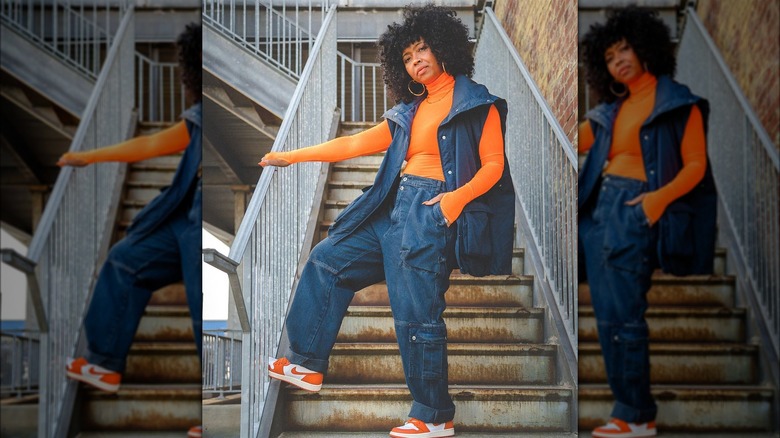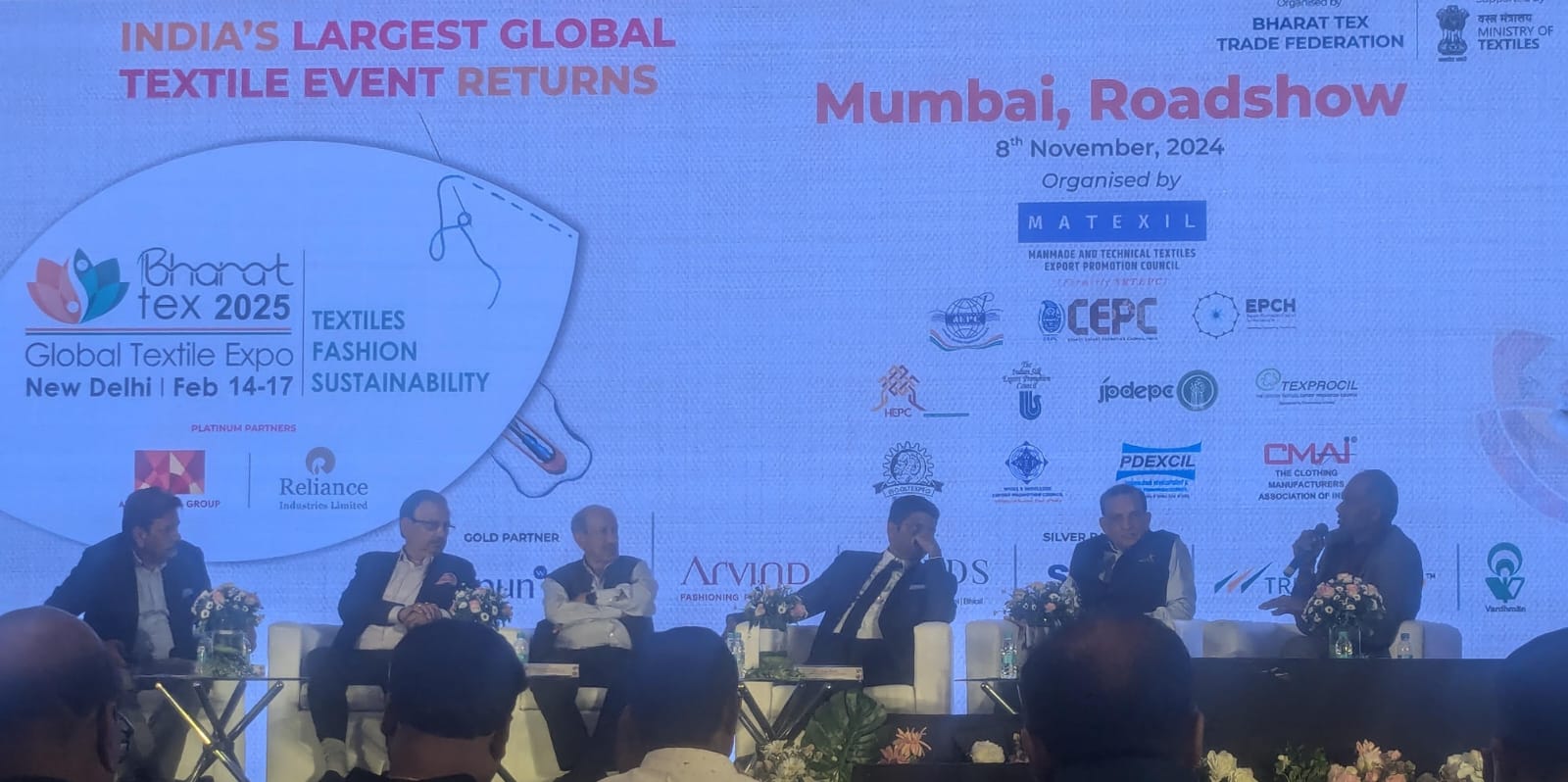FW
eVent Fabrics, a leader in waterproof and breathable technologies, is advancing sustainability with the launch of eVent Bio and alpineST, both of which are free from PFAS chemicals. These innovations align with new regulations in the European Union and several US states, which are phasing out PFAS due to environmental concerns.
Chad Kelly, President of eVent Fabrics, emphasized that the company views sustainability as an ongoing journey, with a focus on providing the most sustainable options available while ensuring that performance standards remain high. He noted that eVent Bio and alpineST successfully meet these goals without compromising on quality.
eVent Bio utilizes a bio-based membrane made from renewable plant-based and biomass materials. It provides all-weather protection with a reduced carbon footprint and is recyclable at the end of its lifecycle. The technology incorporates recycled face and backer fabrics, ensuring durability and flexibility.
alpineST offers an eco-friendly alternative to ePTFE, featuring a fluorine-free membrane and recycled face fabrics. Designed for extreme conditions, it boasts an initial waterproof rating of 25K, maintaining 20K after multiple washes.
eVent Fabrics' full range of PFAS-free laminates supports apparel, footwear, and accessories, meeting global recycling standards while delivering trusted performance in the most demanding environments.
At the recent Australian Cotton Conference, TaslimulHoque, Director - Operations, Square Textiles, outlined the company's commitment to integrate more sustainable practices within the cotton supply chain.
Co-hosted by the Australian Cotton Shippers Association and the International Cotton Association Ltd Women in Cotton committee, the event gathered industry leaders to address the growing demand for data transparency throughout the cotton value chain.
Key discussions at the event focused on the forthcoming European Union legislation for resource efficiency, biodiversity restoration, and pollution reduction. Panelists, including representatives from IKEA, Agri Direct Australia, and various Australian cotton stakeholders, examined the challenges and opportunities posed by these regulations.
Eimear McDonagh, Director, Agri Direct Australia Pty, emphasised on the importance of industry-wide collaboration to ensure the implementation of the EU Green Deal leads to positive outcomes without unintended consequences. The panel also stressed on the need to highlight the benefits of cotton and other natural fibers, both in Australia and globally, to support a sustainable future for the textile industry.
Canberra-based company, Samsara Eco plans to construct a textile-to-textile recycled nylon 6.6 polymer production facility in Southeast Asia in collaboration with Israel-headquartered polyamide manufacturer Nilit.
This initiative is designed to tackle the challenge of recycling nylon 6.6, a widely used but notoriously difficult-to-recycle fiber in the performance apparel and fashion industries, especially when blended with other fibers like spandex.
Samsara Eco has developed a patented enzymatic recycling technology called EosEco that breaks down plastics into their core molecules, which can be used to create new plastics. The technology can process a variety of feedstock inputs, including colored and blended textiles like nylon 6.6 with spandex.
Founded in 2020 in partnership with the Australian National University (ANU) and supported by Main Sequence and Woolworths Group, Samsara Eco has raised over A$160 million from local and global investors, including Breakthrough Victoria, DCVC, Hitachi, lululemon, Temasek, Wildcard Ventures, and Wollemi Capital.
Approximately 4 million tons of nylon 6.6 is produced annually, making it a key fiber in the textile industry. However, its recycling has been a significant challenge. Expected to be operational by late 2026, this new plant will focus on recycling textile waste to produce high-quality recycled nylon 6.6 polymers. These polymers can be seamlessly integrated into existing supply chains for the creation of new textile fabrics.
Paul Riley, CEO and Founder, Samsara Eco, says, discarded clothing made from nylon 6.6, such as activewear and car interiors, often ends up in landfills or is incinerated, which is harmful to the planet. By partnering with Nilit, Samsara Eco can reverse this trend and give these materials new life.
IlanMelamed, General Manager, Nilit, adds,this initiative aims to provide the apparel market with premium nylon 6.6 products that have a lower environmental impact. Implementing textile-to-textile recycling solutions will significantly reduce global carbon emissions and the 92 million tons of textile waste added to landfills annually.”
Nilit plans to incorporate EosEco yarn into its Sensil portfolio, further advancing its commitment to sustainable textile production.
Bangladesh is being compelled to forgo $5 billion in annual export revenue due to the absence of a comprehensive policy framework to promote the recycling of post-industrial textile waste, known as jhut, says a new study conducted jointly by GesellschaftfürInternationaleZusammenarbeit (GIZ) GmbH and H&M.
Titled ‘Regulatory Framework to Enable Recycling of Post-Industrial Waste (Jhut) for the RMG Industry in Bangladesh’ the study emphasiseson the need to formalise the jhut sector to unlock the textile industry's potential for innovation and growth through a circular economy.
Currently, limited to 18,000-24,000 tons annually,Bangladesh's recycling capacity for apparel-grade yarns represents only 5-7 percent of the 330,000 to 500,000 tons of cotton and cotton-elastane waste produced each year. Of this, less than 5 percent is upcycled into products like rag rugs, rag dolls, and blankets. Over 55 percent is exported to global recycling companies, while the remainder is downcycled into stuffing materials, incinerated for energy recovery, or sent to landfills.
To address this issues, the study emphasies on the need to establish an effective jhut management framework that maximises economic, social, and environmental benefits. Key recommendations by the study include fostering collaborative stakeholder engagement, protecting workers' rights, promoting circular textile practices, and enhancing capacity and technology in the jhut sector. The study also suggests policy measures for the informal jhut sector, such as improving data transparency through a national jhut database, introducing industry guidelines for jhut management, and revising tax and tariff rules related to jhut transactions.
Additionally, the report proposes setting up central depository systems and cluster-based sorting hubs to encourage decent work and social inclusion, as well as improving the investment environment for advanced recycling technologies. The current disposal methods, which include incineration and downcycling, pose significant environmental risks, such as air pollution and resource depletion.
Lastly, the study highlights the global shift towards sustainability in the textile sector, driven by major brands like H&M and stricter regulations from bodies like the European Union. This trend presents an opportunity for Bangladesh to enhance trade through sustainability goals, formalise the jhut sector, and adopt circular economy models, thereby driving innovation and market growth for recycled textiles, it says.
Export earnings from Sri Lanka’s apparel sector expanded by 3.29 per cent Y-o-Y to $414 million in July 2024 as against export earnings of $401.18 million in July 2023.
Sri Lanka’s exports to the United States grew by 5.47 per cent Y-o-Y to $183.21 million during the month while exports to the United Kingdom and other markets increased by 8.19 per cent Y-o-Y and 3.40 per cent Y-o-Y to $55.72 million and $60.82 million. However, exports to the European Union contracted by 2.16 per cent Y-o-Y to $ 114.63 million.
Cumulative export earnings from the sector contracted by 0.15 per cent Y-o-Y to Rs.2.67 billion during the first seven months, from Jan-July’24 as compared with the $2.68 million in the Jan-July 2023 period.
For the first seven months of the year, exports to the United States and European Union contracted by 1.52 per cent Y-o-Y and 4.09 per cent Y-o-Y.
Exports to the United Kingdom expanded by 7.18 percent Y-o-Y, while exports to other markets grew by 2.05 percent Y-o-Y.
Yohan Lawrence, Secretary General, Joint Apparel Association Forum (JAAF)notes, for sustained growth, government policies need to remain consistent and supportive, providing a stable environment for the sector to flourish. The industry needs to adapt to the market changes, add value and leverage e trade agreements to boost export growth in the coming months,he adds.
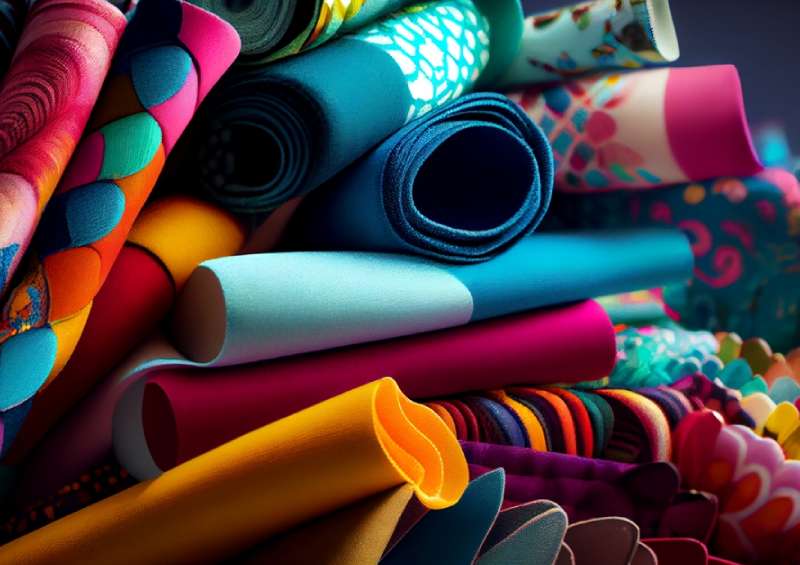
The Chinese textile industry recorded a mixed bag of results in July, with overall exports showing a slight month-on-month decline but maintaining a year-on-year growth trend. Latest customs data reveals the cumulative export volume for fibers, textiles, and apparel from January to July increased 9 per cent compared to the same period last year.
Finished fabric products lead growth
The finished fabric products segment saw strongest growth at 13 per cent. Apparel exports also fared well, with an 11 per cent increase. However, the fiber segment lagged behind, showing a year-on-year growth rate of only 3 per cent.
The report also highlights this year's export growth has been primarily due to overseas restocking efforts, achieved through lower prices rather than increased volumes. Factors such as pricing and exchange rates have impacted the overall export value.
Month-on-month decline in most categories
There has been a month-on-month performance drop for most categories, except apparel. The largest decreases were observed in Chapters 54 and 55, particularly in synthetic filament yarns, staple fibers and woven fabrics.
Year-on-Year growth, led by downstream categories
On year-on-year basis, most categories showed growth, with downstream categories like apparel and knitted fabrics leading the way. The upstream fiber segment exhibited relatively limited growth.
An analysis of categories with cumulative changes exceeding 10,000 tons from January to July reveals the following:
• Significant increases: Used clothing, woven fabrics made from synthetic filament yarns, and other knitted fabrics saw a combined year-on-year increase of 575,000 tons.
• Significant decrease: Synthetic filament yarns, particularly polyester filament POY and FDY, experienced a decline, with their cumulative export volumes falling by 146,000 tons and 106,000 tons, respectively.
Overall the Chinese textile industry's export performance in July presents a mixed picture. While total exports maintained a year-on-year growth trend, a month-on-month decline and structural shifts within the industry highlight the challenges and opportunities faced by Chinese textile exporters in the current global market.
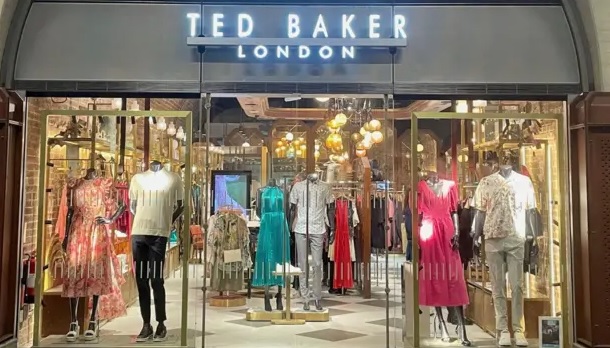
Once-thriving fashion label of the British high street, Ted Baker now stands as a cautionary tale in the fickle world of fashion. Its drop from grace, marked by financial struggles and store closures, serves as a poignant reminder of the challenges faced by established brands in an era of rapid change. But Ted Baker's story is not simply one of individual misfortune; it reflects broader trends that threaten many traditional retailers, particularly in the UK.
The perfect storm
Ted Baker's troubles began in late 2018 when its founder and CEO, Ray Kelvin, was accused of inappropriate behavior, including ‘forced hugging’. The resulting public outcry and Kelvin's subsequent resignation cast a shadow over the brand's image. This incident coincided with broader shifts in consumer behavior and the retail industry. The COVID-19 pandemic further exacerbated Ted Baker's challenges. Lockdowns and remote work led to a decline in demand for formal wear, a core part of Ted Baker's offering. The brand’s traditionally formal style and heavy reliance on brick-and-mortar stores left it ill-equipped to adapt.
Financial troubles deepened as sales dropped. Despite efforts to revitalize its image and embrace e-commerce, Ted Baker struggled to regain its footing. In 2023, it was acquired by Authentic Brands Group but the challenges proved insurmountable. In 2024, all remaining UK stores were closed, marking the end of an era.
Are British brands more susceptible?
While Ted Baker's downfall was influenced by unique circumstances, it also highlights vulnerabilities that many British brands face. The UK retail landscape is notoriously competitive, with high operating costs and a saturated market. The rise of fast fashion and online giants like ASOS and Boohoo has further intensified the pressure. The rise of e-commerce and changing consumer habits have contributed to the decline of traditional brick-and-mortar retail, impacting many established British brands. For example, Debenhams, a once-iconic British department store chain, collapsed in 2020 after failing to adapt to the changing retail landscape.
Brexit has also played a role, impacting supply chains and consumer sentiment. A report by the British Retail Consortium found that Brexit-related costs have added £1.5 billion annually to the UK retail industry. This burden disproportionately affects smaller and independent brands, limiting their ability to invest in innovation and adapt to market shifts.
The e-commerce challenge
Ted Baker's struggles also underscore the difficulties that established brick-and-mortar brands face in transitioning to e-commerce. Take Topshop, another British fashion retailer for example, it struggled to establish a successful online presence and ultimately went into administration in 2020. What’s plaguing them is:
Legacy systems: Many older brands have outdated technology and infrastructure that can hinder their ability to compete online.
Brand identity: Shifting from a physical to a digital presence requires careful consideration of how to maintain brand identity and customer experience.
Competition: The online marketplace is crowded and highly competitive, with established players and new entrants vying for market share.
A McKinsey study found that only 20 per cent of traditional retailers have fully integrated their online and offline channels. This lack of omnichannel capability leaves them at a competitive disadvantage, unable to provide the seamless shopping experience that consumers now demand.
The story of Ted Baker is a complex one, with no easy answers. It serves as a warning to all brands, regardless of origin, that complacency and failure to adapt can be fatal. The challenges of a changing retail landscape, coupled with internal missteps, proved too much for this once-beloved fashion label. While British brands face particular hurdles, they are not alone in struggling to navigate the new retail reality. Those that survive and thrive will be the ones that embrace change, innovate, and connect with consumers in meaningful ways.
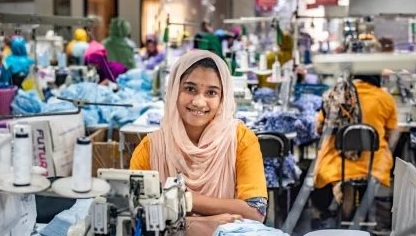
Amidst recent political unrest and labor concerns, nine global organizations representing over 3,000 fashion brands and retailers have made a united appeal to international buyers: Keep sourcing from Bangladesh. In a joint statement, these organizations, whose members include industry giants like H&M, Inditex, and C&A, have called for buyers to avoid cancelling orders or penalizing delayed shipments from Bangladesh. The appeal emphasizes the need for stable partnerships, ethical sourcing practices, and labor rights safeguards as the nation navigates a period of significant transition.
Business at stake
The Bangladeshi garment industry, a strong pillar of the economy, has already experienced significant losses amidst the recent protests and political upheaval. Factory closures in the lead-up to the government-mandated holiday on August 7 resulted in an estimated loss of $150 million per day. The organizations' statement highlights the importance of ongoing orders to prevent further economic damage and protect the livelihoods of millions of workers.
As per some estimate, Bangladeshi garment industry has suffered losses over $1 billion due to recent events. While some factories have resumed operations, uncertainties persist regarding the overall impact on the sector. The statement's emphasis on avoiding order cancellations and penalties reflects the urgent need to stabilize the industry and protect workers' incomes.
Call for ethical sourcing
The joint statement goes beyond simply urging continued sourcing. It stresses the importance of responsible purchasing practices, transparency, and collaboration with suppliers. It also calls for a focus on labor rights and safety to mitigate the adverse effects of the recent protests. This underscores the growing emphasis on ethical sourcing within the global fashion industry and the need for brands to uphold their commitments even in challenging circumstances.
The situation in Bangladesh remains fluid, but the collective voice of global organizations offers a glimmer of hope for the nation's garment industry. The appeal for continued sourcing, paired with the emphasis on ethical practices and labor rights, highlights a potential path forward. It's a call for solidarity, resilience, and responsible business practices that benefit both brands and workers alike.
The ITMF Awards 2024 honoredinnovative achievements in two categories: Sustainability & Innovation and International Collaboration. Winners will present their projects at the upcoming ITMF & IAF Conference 2024 in Samarkand, Uzbekistan, from September 8-10.
The ITMF Sustainability & Innovation Award recognized significant advancements in sustainable textile practices. The 2024 winners include GuoWang High-Technique Fiber Company (China) for low-carbon innovations in the PET fiber industry, HeiQAeoniQ Holding AG (Switzerland) for hyperscalingHeiQAeoniQ, and Samsara Eco (Australia) for infinite plastic recycling solutions for end-of-life textiles.
The ITMF International Collaboration Award highlighted efforts in global cooperation aligned with the 17 Sustainable Development Goals. Winners include DITF (Germany) and RBX Creations (France) for developing next-generation cellulosic filaments from hemp, and HKRITA (Hong Kong, China) for their innovative contributions.
These awards underscore the textile industry's commitment to sustainability and international collaboration, driving progress towards a more sustainable future.
Sympatex Technologies, a global leader in sustainable functional textiles, will showcase its latest advancements at the Lineapelle fair in Milan from September 17-19, 2024. Known for its commitment to sustainability, Sympatex will introduce two innovative products aimed at revolutionizing footwear performance and eco-friendliness.
The first, moisture-tech by Sympatex, offers rapid sweat absorption and quick drying, reducing heat inside shoes by 45 per cent. This innovation not only minimizes blister formation but also eases heat stress, enhancing comfort for the wearer.
The second, non-woven technology, eliminates the use of polyurethane foam in laminates, replacing it with 100 per cent recycled polyester. This switch has led to a 10 per cent reduction in carbon dioxide emissions and a 15 per cent decrease in water consumption, without compromising performance or durability. The life cycle analysis (LCA) confirms that this innovation significantly reduces environmental impact.
Kim Scholze, CSO of Sympatex, expresses enthusiasm about presenting moisture-tech and non-woven technology at lineapelle. These innovations are seen as a decisive step toward creating fully recyclable, mono-material laminates that prioritize environmental sustainability while providing superior comfort and durability.
Yasemin Malcolm, Product Manager Footwear at Sympatex, notes that the new non-woven laminates are more resource-efficient, advancing the company's goal of creating fully recyclable, mono-material laminates while also enhancing technical performance.
Sympatex's participation at Lineapelle 2024 underscores its dedication to sustainable innovation in the footwear industry.









